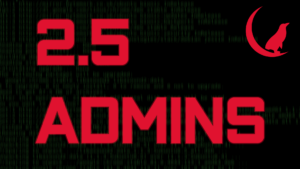
 2.5 Admins
2.5 Admins 2.5 Admins 212: WHODIS
Sep 12, 2024
Discover the alarming exploitation of the WHOIS system by a rogue server, revealing critical internet security flaws. Microsoft is shaking things up by mandating updates for older Windows 11 versions—get ready to adapt! Plus, learn simple ways to set up TP-Link Omada gear and tackle common networking concerns. The hosts dive into Apple’s connectivity issues and offer practical Wi-Fi troubleshooting tips. Tune in for tech insights that blend humor with essential advice for staying secure and connected!
Chapters
Transcript
Episode notes

